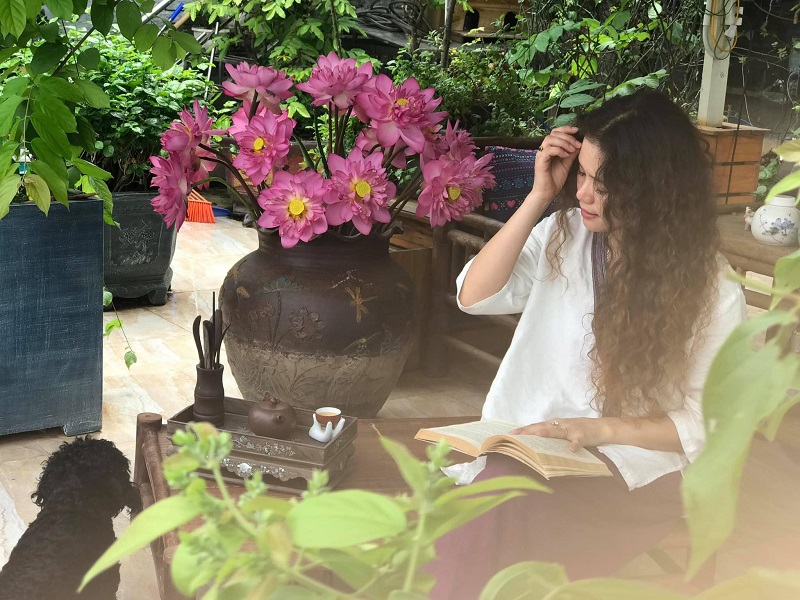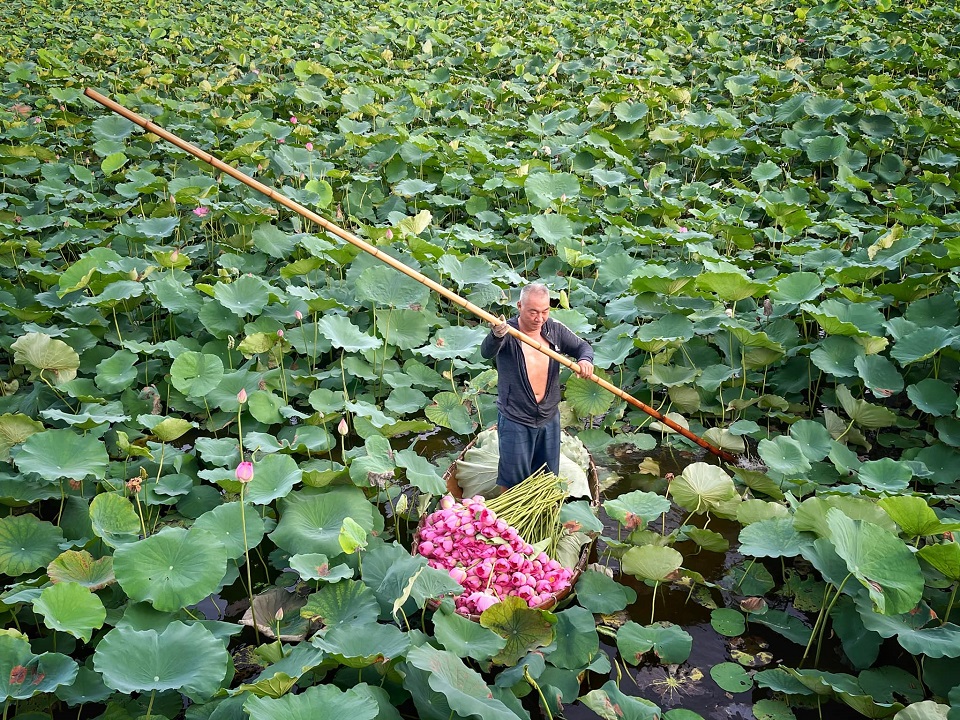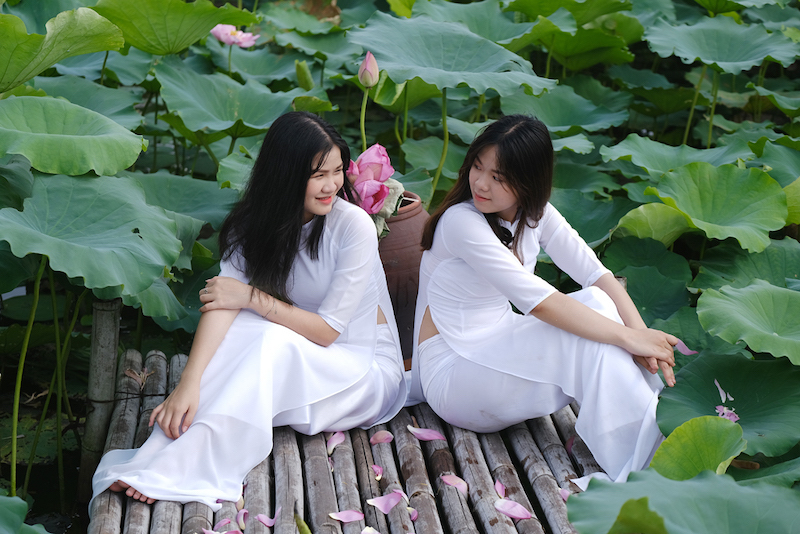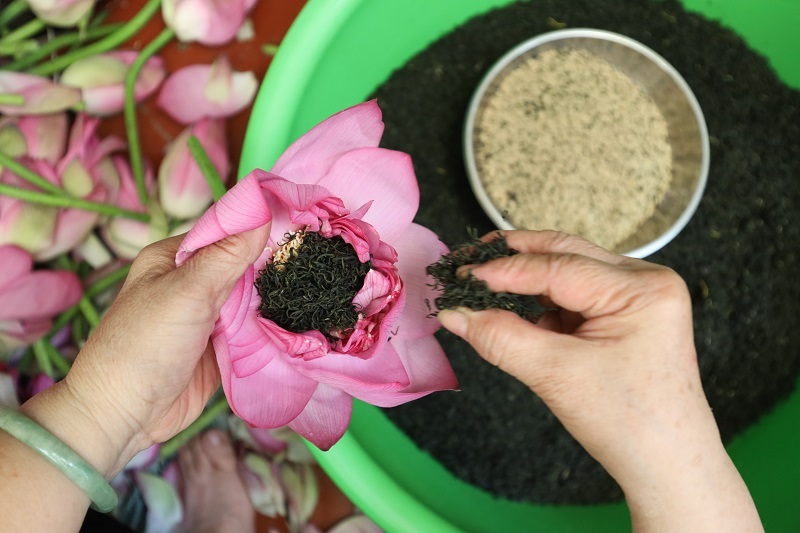Hanoi restores West Lake lotus ponds ahead of first major Lotus Festival
The first Lotus Festival in Hanoi is expected to help diversify the capital's tourism products.
The Hanoi Lotus Festival 2024 will be held over five days in July at the Tay Ho District Creative and Cultural Space, the first large-scale event of its kind in the city, featuring various activities to honor lotus farming and lotus products.
| Bach Diep Pink Lotus - Ancient lotus species of Dam Tri Pond in Tay Ho (West Lake). Photo: Ngoc Tu/The Hanoi Times |
A festival in honor of Hanoian lotuses
The Hanoi Lotus Festival 2024 will cover the opening ceremony of the Hanoi Lotus - OCOP (One Commune, One Product) Fair, the inauguration of the Tay Ho District OCOP Product Promotion and Sales Center, and the launch of a photo exhibition on "The Lotus in Vietnamese Cultural Life."
At the opening ceremony, the organizing committee will honor artisans, skilled workers, and those who have preserved and developed lotus cultivation in conjunction with the development of experiential agro-tourism and the promotion of local products. Awards will also be given to farms with outstanding lotus products.
As part of the Hanoi Lotus Festival 2024, another ceremony will be held to confer the title of "National Intangible Cultural Heritage" on West Lake lotus tea brewing. There will also be a "Lotus Color" street parade, music and poetry nights, and a lotus flower photo contest.
| The people of Hanoi are fond of lotuses, which grow well in the soil of the city. Photo: Thuy Nguyen |
According to Tay Ho District Party Committee Secretary Le Thi Thu Hang, the Hanoi Lotus Festival in 2024 will be an opportunity to preserve and develop lotus-based traditional cultural values.
In addition to stimulating demand from Vietnamese customers, Nguyen Xuan Dai, Director of Hanoi's Department of Agriculture and Rural Development, hoped that through the upcoming festival, lotus products from West Lake would become widely known and chosen as presents by international tourists and ambassadors of other countries.
Meanwhile, silk weaver Phan Thi Thuan said the Hanoi Lotus plant has interesting stories to tell, and by telling them in a beautiful, culturally rich space of pedestrian streets along the West Lake, the Hanoi Lotus Festival will attract many domestic and foreign tourists, creating a tourist, cultural and economic highlight for the capital."
West Lake’s Bach Diep lotus area to be revived
| Lotus harvest at Dam Tri Pond. Photo: Viet Nguyen |
However, as remarked by Tay Ho District People's Committee Vice Chairman Nguyen Thanh Tinh, the local lotus cultivation area has been shrinking since 2018 due to changes in weather conditions, water quality, and other factors.
"Restoring and developing the profession of lotus farming is extremely necessary to beautify the landscape around West Lake and develop lotus tea brewing and lotus-related products," he said.
The Bach Diep Lotus is characterized by hundreds of petals of all sizes that hug the yellow pistil so that it always retains its fragrance. For decades, Dam Tri Pond in West Lake has been the only body of water in Hanoi where the most beautiful Bach Diep Lotus flowers grow.
Every summer, Dam Tri Pond is blanketed with beautiful lotus flowers of diverse colors, attracting visitors, especially girls to create Instagramable moments. Photo: Pham Hung/The Hanoi Times |
Since March, the planting of West Lake Lotus, also known as Bach Diep Lotus, has been piloted in four other ponds around West Lake, covering a total of about 7.5 hectares.
The products include flowers for tea, flowers for decoration, and seeds for cooking. The Tay Ho Lotus is a special variety of lotus with up to 100 petals that has been granted a geographical indication. Tay Ho District is working with the Fruit and Vegetable Research Institute and Hanoi City Agricultural Extension Center to implement the project "Lotus Production Model Designing Associated with Ecotourism Development along the Value Chain in Tay Ho District, Hanoi."
"The development of lotus cultivation in ponds around the West Lake will be an important prerequisite for the locality to promote tourism development. In the coming period, the district will work with agencies to complete the overall plan to develop lotus cultivation in the district by 2025 and beyond," Tinh said.
| Making Tay Ho lotus tea is a centuries-old trade in Hanoi. Photo: Ngoc Tu/The Hanoi Times |
According to Dai, most lotus varieties in Vietnam can currently only be grown and harvested once a year. In the near future, Hanoi expects to plant more new lotus varieties from home and abroad in the district on a pilot basis. The city also plans to convert low-lying rice fields with low yields into lotus cultivation zones.
At the same time, technology will be further applied to diversify the colors and shapes of the flower and to extend the flowering period of the plant. In addition to creating green landscapes and protecting the environment, these efforts are expected to help increase the economic value of the lotus, making it a year-round source of income for locals.

















